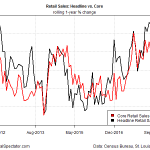A study of the 2004 repatriation holiday shows 94% of the money did nothing to create jobs.
The Wall Street journal explains Why Cash Returning From Overseas Isn’t Likely to Create Jobs—and Might Even Reduce Them.
Based on analyses of past programs to repatriate overseas corporate earnings, Wall Street analysts and tax experts expect companies would use the money for purposes such as buying back shares and mergers. Instead of adding jobs, they say, companies might cut them if they use their cash to buy rivals and then take out costs.
“There will be increased share repurchases, but limited impact on building new plants, real investment activity and employment,” said Dhammika Dharmapala, a University of Chicago law professor who has studied what U.S. companies have done with repatriated cash
Mr. Dharmapala co-authored a working paper for the National Bureau of Economic Research that found that after companies brought back cash during a tax holiday in 2004, they spent 79 cents of every dollar on share repurchases and 15 cents on dividends.
There was no evidence of an increase in domestic investment, according to the working paper.
Percentage Increases Where the Money Went
The above percentages were according to a Credit Suisse HOLT analysis of how the 50 companies with the most earnings overseas at the time changed their spending.
The quoted paragraphs are according to the NBER.
Surprising Not
?This is what I said yesterday: “Mergers, dividends, and buybacks will not create one job. In fact, mergers are likely to decrease jobs.”
Upset About the Bill?
If you believe as I do, this bill deserves to die, then please take action as discussed in Upset About the One-Sided Tax Bill? Here’s What to Do About It!















Leave A Comment